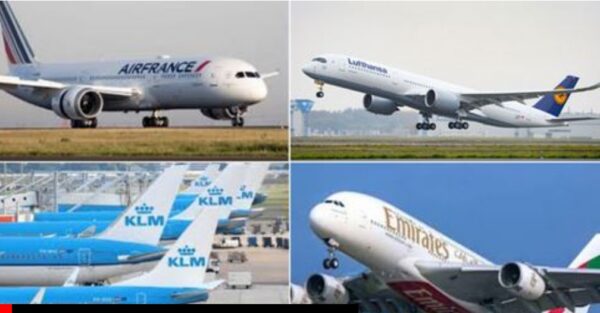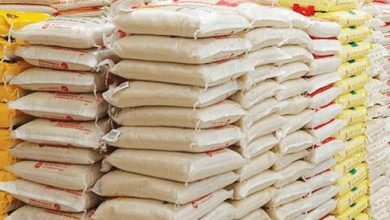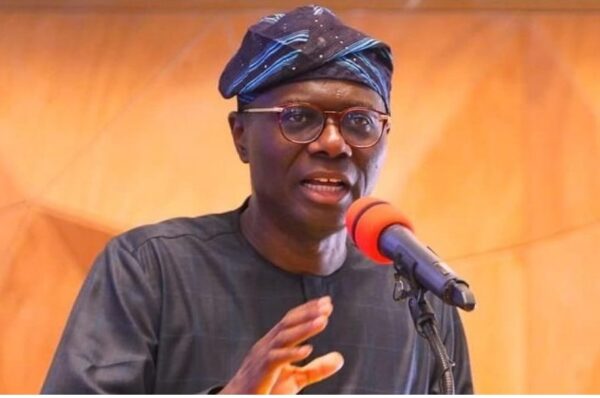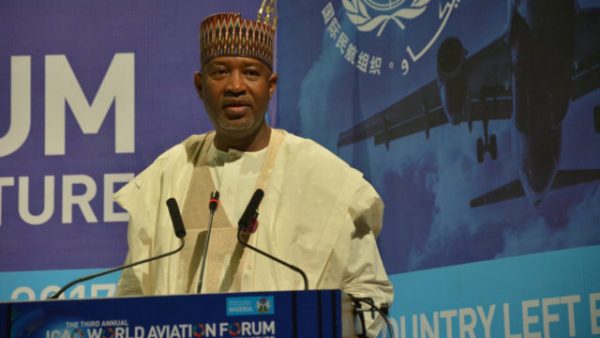Foreign Airlines Decry Lingering Forex Crisis As Backlog Mounts

One of the biggest tasks currently before the Minister of Aviation and Aerospace Development, Festus Keyamo, is to ensure that more airlines do not suspend their operations from the Nigerian market.
Experts said any exit could be catastrophic to the entire aviation sector and the economy in general.
Following his return from the Dubai Airshow in November, Keyamo revealed that Emirates Airline was poised to resume flight operations in Nigeria, having suspended its operations in the country twice in 2022.
7.5M
1.8K
Ogun Community Where Flood Sweeps Away Students Annually| Punch
Emirates had previously suspended flights in September 2022 but resumed after the Central Bank of Nigeria released $265m in outstanding ticket sales.
And barely two months later, the airline halted operations in the country, citing unsuccessful negotiations with Nigerian authorities over fund repatriation.
Etihad Airways also suspended flights to Nigeria during the same period.
The minister’s spokesman, Tunde Moshood, noted, “I can assure you that everything needed to be done has been done.”
He emphasised that the assurance was not unilateral from Nigeria but stemmed from a mutual agreement between the two countries.
Experts said if the crisis is not resolved early, some airlines may follow the steps of Etihad and Emirates Airlines in withdrawing their service from Nigeria.
They noted the government must find a solution to the forex crisis and prevent the loss of foreign airlines in the country.
Reacting to speculations that more airlines may exit the Nigerian market, Group Capt. John Ojikutu(rtd) said, “We are moving down fast into the valley of death of the industry if these airlines carry out their threats of withdrawing their commercial operations from Nigeria.”
According to Ojukutu, foreign airlines are crucial to Nigeria’s aviation industry, and the country needs them more than ever, adding that they contribute over 80 per cent of Nigeria’s commercial aviation services earnings.
“Pay off their earnings or kill the industry. You cannot be selling goods to debtors who are not ready to pay, otherwise, it will run you aground as you too can run aground if you don’t have dependable credible customers as they are,” he warned.
The General Secretary of the Aviation Safety Round Table Initiative, Olumide Ohunayo, pointed out that blaming Emirates Airlines for its departure due to trapped funds was unjustified.
“You cannot blame Emirates Airlines for leaving because its funds are trapped. It had just declared a profit. So, even without Nigeria, they are profitable. They can do without us, and their position is understandable,” Ohunayo said
He highlighted the ongoing issue of paying in dollars for certain services in Nigeria, particularly in aviation fuel supply, which refused to accept payment in naira.
“Why wouldn’t they accept the naira in Nigeria? It’s one of those bases that made them pull the plug. If they return, you will see a slight drop in airfare. But, unfortunately, the local fuel supply refused to accept naira.
“They pay in dollars for almost everything, and you are not paying them. So, everybody is not getting money, agencies, and even the fuel suppliers. The entire value chain has lost money,” said Ohunayo.
Apart from the trapped funds, there are also concerns about high operating costs in the aviation sector.
Nwokoma said Nigeria was found wanting in terms of honouring the Bilateral Aviation Services Agreement.
BASA is an air transport agreement between two countries that allows designated airlines to operate commercial flights, covering the transportation of passengers and cargo.
He noted, “Nigeria is just a very strange country. Some are still saying that the airlines should not be asking for any money from Nigeria. What is BASA? BASA is signed by countries and not airlines. We signed our commitment to BASA and we are not doing any¬thing about it.
“If all countries are defaulting like Nigeria, there will not be any airline that comes into the coun¬try again. The aviation industry is predicated on the US dollar. You pay your catering, handling, hotel and a lot of things in dollars and if you don’t pay, your crew would be sent out.”
He advised the Federal Gov¬ernment to discuss with the foreign airlines the modes of payment for the blocked funds.
“The government should sit with the foreign airlines just like how you sign your BASA agree-ments and agree on quarterly payment of these funds. The gov¬ernment should please keep to that agreement. By then, we will be making progress,” he said.
The President of the National Association of Nigerian Travel Agencies, Susan Akporiaye, also said that the $61.64m paid to foreign airlines was part of the accumulated debts.(The Punch)







